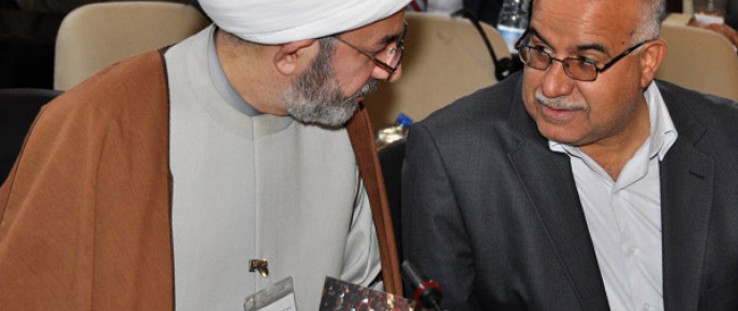 Iraqi legislators confer during an opening session of the Council of Representatives.
USAID
Iraqi legislators confer during an opening session of the Council of Representatives.
USAID
 Iraqi legislators confer during an opening session of the Council of Representatives.
USAID
Iraqi legislators confer during an opening session of the Council of Representatives.
USAID
It took nine months for Iraq to form a new government after parliamentary elections in March 2010. But it took the Council of Representatives' new speaker only a matter of hours to request USAID's assistance in building the capacity of the new parliament.
Osama al-Nujaifi asked USAID to train his staff and the Council of Representatives' new members to ensure that legislators properly oversee the government's operations, correctly develop legislation, and serve the needs of their constituents.
Some 207 legislators—three-quarters of all Iraqi Members of Parliament—registered for a three-day USAID training program held in January.
“Speaker al-Nujaifi clearly articulated a vision to build the administrative system of the Council of Representatives to ensure that it functions democratically, efficiently, and independently,” said Alex Dickie, USAID's mission director in Iraq.
Speaking to parliamentarians, program panelists stressed the need for consistently upholding professional management standards, working toward a consensus when debating topics and issuing reports, and encouraging a free media to increase public awareness.
The course for parliamentarians and additional training for their staff are but two elements of USAID's Legislative Strengthening Program, which was established in 2008 at the request of the Council's leadership to create a responsive, democratic parliament.
The program's team of 70 international and Iraqi professionals is helping legislators in all aspects of their jobs, including to debate laws in a formal, constructive environment; form and run parliamentary committees; analyze proposed legislation; oversee the executive branch; review the national budget; and ensure participation from all political groups and regions. This is particularly important in Iraq, where the Iraqi parliament must meet the public's demands for improved public services, stability, and economic stimulus from their central government.
Paving the Electoral Road
Since 2004, USAID has been promoting democratic stability by building the capacity of Iraq's Independent High Electoral Commission (IHEC). It has provided more than $100 million in technical assistance, laying the groundwork for the first Iraqi elections in January 2005, as well as the constitutional referendum and first national parliamentary elections.
In January 2009, Iraqis cast votes for 14 provincial councils in another IHEC-administered election. This was followed by the Kurdish parliamentary, presidential, and Council of Representatives' elections.
The March 2010 election for a new parliament was the most open election in Iraq's history. It involved recruitment, training, and supervision of more than 330,000 polling staff—equal to half the forces of the Iraqi Army—at more than 50,000 polling stations across the country. Around two thirds of Iraq's 19 million registered voters participated in the election.
USAID's support of the Independent High Electoral Commission and the Council of Representatives has helped build the foundation for credible democratic processes in Iraq.
The IHEC has progressed from relying on international advisers to organize elections to leading the electoral process, receiving indirect assistance from outside experts on specific issues.
Parliament is briskly moving forward, and now represents all of Iraq's major ethnic groups.
By mid-February, Parliament's 325 members had filled most of the government's crucial cabinet posts, paving the way for them to act on additional economic reforms, address unemployment, and improve services for the Iraqi people.









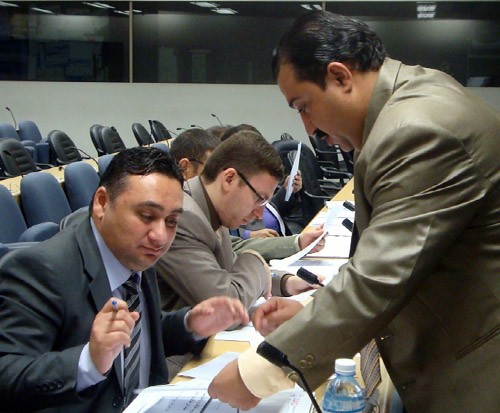
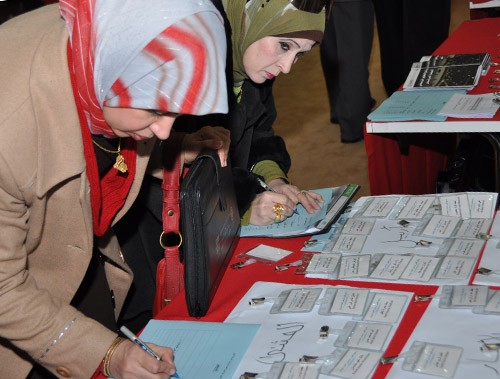
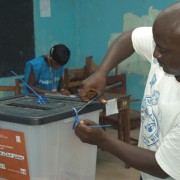
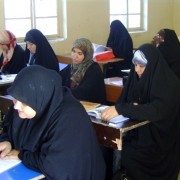
Comment
Make a general inquiry or suggest an improvement.